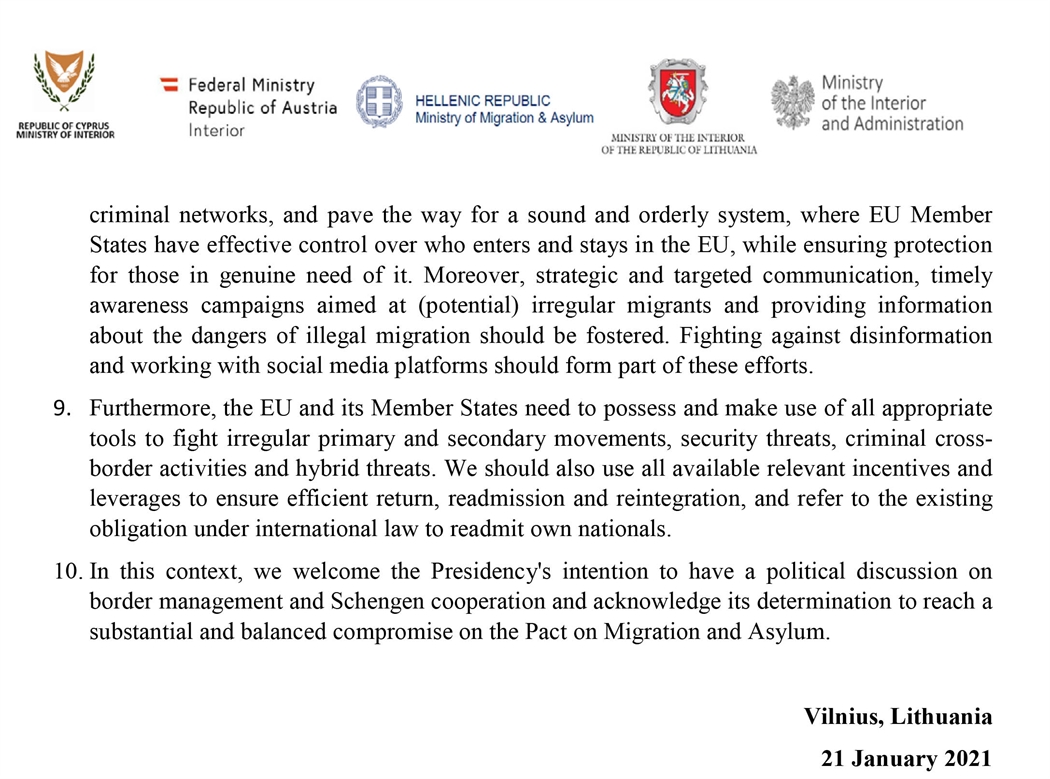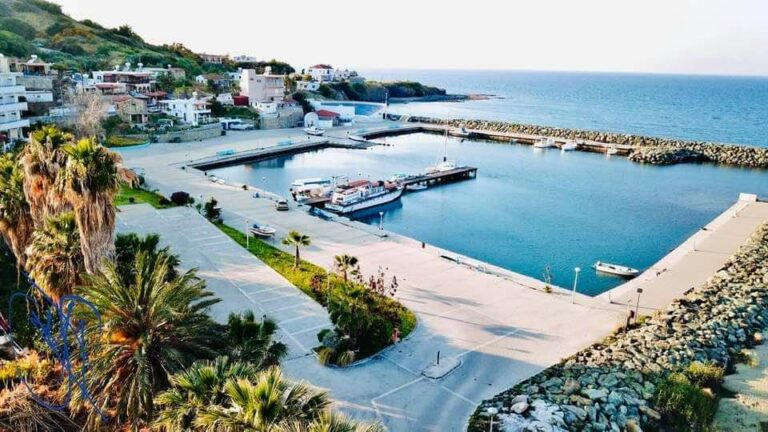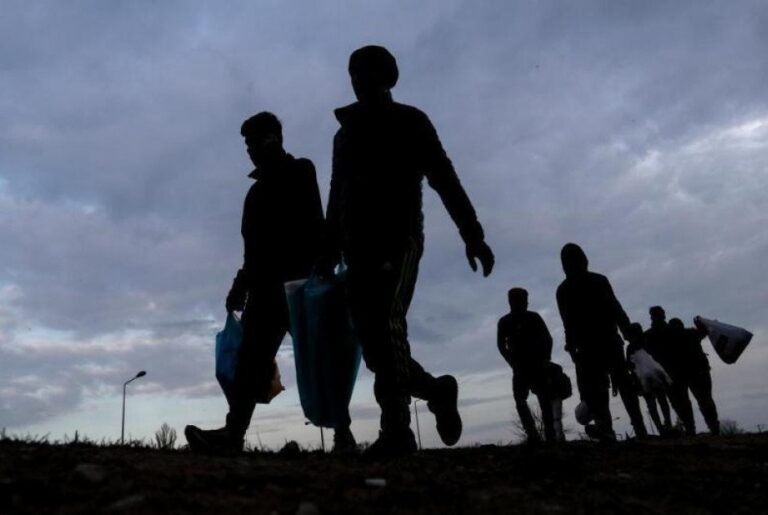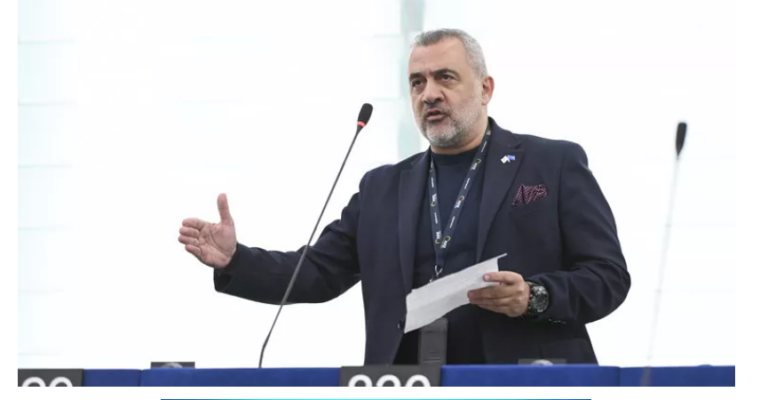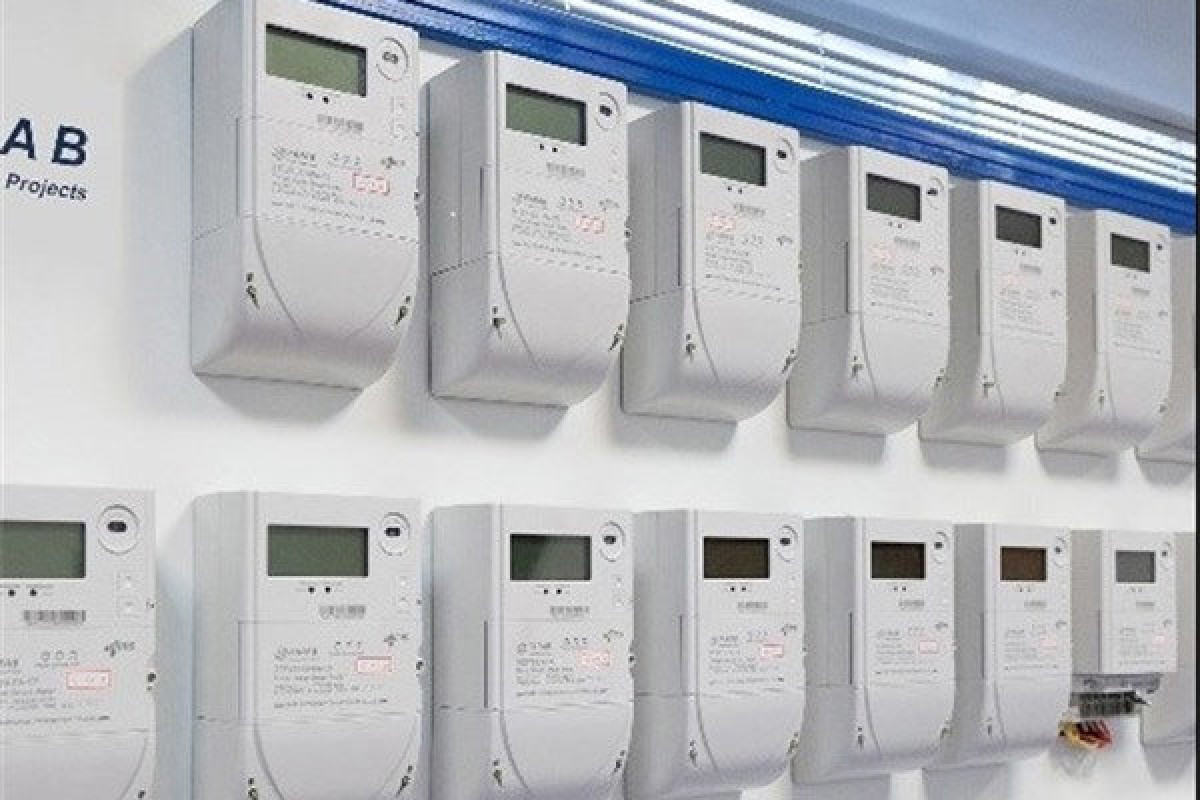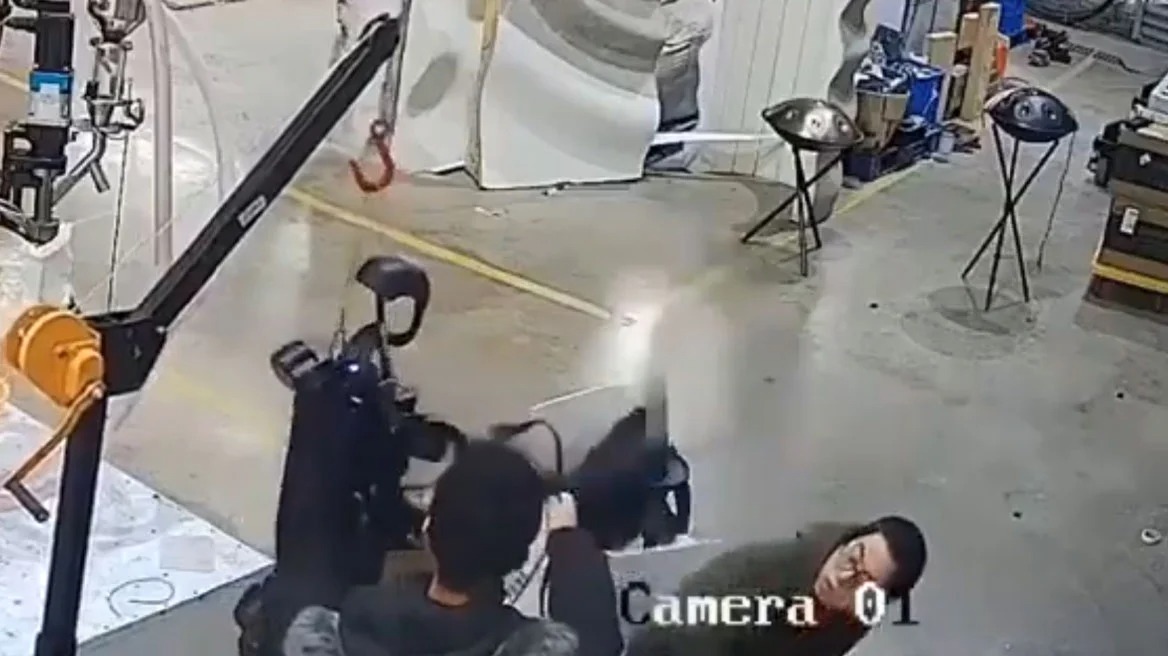Ειδική αναφορά στην περίπτωση της Κύπρου και στην ιδιαιτερότητα της Πράσινης Γραμμής περιλαμβάνει το κείμενο το οποίο συμφωνήθηκε χθες στο πλαίσιο της Διάσκεψης για την ασφάλεια των εξωτερικών συνόρων της Ένωσης, που πραγματοποιείται στο Βίλνιους της Λιθουανίας μεταξύ των υπουργών Εσωτερικών των κρατών μελών και των Ευρωπαίων αξιωματούχων, για την κοινή δήλωση που θα ανακοινωθεί σήμερα, σε σχέση με την αντιμετώπιση του μεταναστευτικού.
Στο κείμενο γίνεται ξεκάθαρο ότι η Πράσινη Γραμμή δεν αποτελεί εξωτερικό σύνορο της ΕΕ και η ανάγκη στήριξης των χωρών που δέχονται μεταναστευτική πίεση. Γίνεται επίσης για πρώτη φορά αναφορά για οριζόντιες κυρώσεις «για να αποφευχθεί η πιθανή πολιτική εργαλειοποίηση της παράνομης μετανάστευσης από τρίτους».
Μέσα από το κείμενο γίνεται αντιληπτή η επιδίωξη των υπουργών Εσωτερικών των κρατών μελών πρώτης γραμμής για την υιοθέτηση κοινής θέσης τόσο για την αναγκαιότητα αποτελεσματικής φύλαξης των εξωτερικών συνόρων αλλά και την αυστηροποίηση των μέτρων ασφάλειας.
Την ίδια ώρα, όπως πληροφορούμαστε, οι αλλεπάλληλες επαφές και η επιμονή του υπουργού Εσωτερικών Νίκου Νουρή αναφορικά με την αναγκαιότητα στα όποια μέτρα αποφασιστούν να συμπεριληφθεί με ειδική αναφορά και η Πράσινη Γραμμή με την υπόδειξη ότι δεν αποτελεί το εξωτερικό σύνορο της χώρας μας, φαίνεται να έφερε αποτέλεσμα.
Σύμφωνα με πληροφορίες του «Φ», στο κείμενο της κοινής δήλωσης που αναμένεται να κυκλοφορήσει σήμερα, η Κύπρος πέτυχε τη συμπερίληψη ξεκάθαρης αναφοράς στην παράγραφο 3 ότι «η Πράσινη Γραμμή δεν είναι το εξωτερικό μας σύνορο» αλλά και στην παράγραφο 5 ότι «κράτη μέλη που αποτελούν τα εξωτερικά σύνορα αλλά και στην Πράσινη Γραμμή στην περίπτωση της Κύπρου καθώς και κράτη μέλη, που βρίσκονται υπό μεταναστευτική πίεση, πρέπει να υποστηριχθούν αποτελεσματικά ώστε να μπορέσουν να υπερασπιστούν τα συμφέροντα ολόκληρης της ΕΕ και να διασφαλίσουν ένα ψηλό επίπεδο ασφάλειας για το σύνολο των κρατών μελών».
Πρόκειται ουσιαστικά για ένα κείμενο δέκα σημείων το οποίο θα αποτελέσει την κοινή δήλωση των υπουργών Εσωτερικών. Ιδιαίτερα σημαντικές είναι και οι αναφορές στις παραγράφους 1 και 2. Όπως αναφέρεται χαρακτηριστικά στην πρώτη παράγραφο: «Η ασφάλεια και η ακεραιότητα του χώρου Σένγκεν δεν πρέπει να διακυβεύονται. Ένας χώρος χωρίς ελέγχους στα εσωτερικά σύνορα μπορεί να λειτουργήσει αποτελεσματικά μόνο εάν τα εξωτερικά σύνορα προστατεύονται σωστά. Απαιτούνται αποφασιστικές προσπάθειες και πρόσθετοι πόροι για την ενίσχυση της ανθεκτικότητάς μας στις παρούσες ή μελλοντικές προκλήσεις».
Επίσης στη δεύτερη παράγραφο του κειμένου αναφέρονται τα εξής: «Η ΕΕ έχει δει την εκμετάλλευση της παράνομης μετανάστευσης ως μέσο άσκησης πολιτικής πίεσης. Για να αποφευχθεί η πιθανή πολιτική εργαλειοποίηση της παράνομης μετανάστευσης από τρίτους, πρέπει να ενισχύσουμε την ικανότητά μας να ενεργούμε προληπτικά και να ανταποκρινόμαστε γρήγορα, αποτελεσματικά και αποφασιστικά, μεταξύ άλλων μέσω διπλωματικής δράσης, ενιαίας ευρωπαϊκής προσέγγισης και φωνής, καθώς και με αποτελεσματικά μέτρα προστασίας των συνόρων και οριζόντιων κυρώσεων, σεβόμενοι τις διεθνείς μας υποχρεώσεις».
Τέλος στην παράγραφο 8 αναφέρεται μεταξύ άλλων το εξής: «Ενώ εργαζόμαστε για τις πιεστικές προκλήσεις στα εξωτερικά σύνορα (στην Πράσινη Γραμμή στην περίπτωση της Κύπρου), θα πρέπει επίσης να ενισχύσουμε το Κοινό Ευρωπαϊκό Σύστημα Ασύλου και να εντείνουμε τις εργασίες για τη μείωση των κινήτρων για παράνομη μετανάστευση, την πρόληψη της κατάχρησης στο σύστημα ασύλου, αποκλείοντας τις ”αγορές ασύλου” και τη χειραγώγηση ανθρώπινων ζωών από κρατικούς παράγοντες ή εγκληματικά δίκτυα και ανοίγουν το δρόμο για ένα υγιές και τακτοποιημένο σύστημα, όπου τα κράτη μέλη της ΕΕ έχουν αποτελεσματικό έλεγχο για το ποιος εισέρχεται και διαμένει στην ΕΕ, ενώ εξασφαλίζοντας προστασία για όσους την έχουν πραγματικά ανάγκη».
Το προσχέδιο στα αγγλικά:
The Conference on Border Management
Final draft
Joint Statement
21 January, 2022
Vilnius
We, the Representatives of Austria, …, Bulgaria, ….Cyprus, …, Greece, …, Lithuania, …, Poland, ……………………………………………………………………………………………………….., in the presence of representatives of the European Commission, the European Parliament, European Border and Coast Guard Agency (Frontex), Europol, the European Union Agency for Asylum (EUAA) and the European Union Agency for Fundamental Rights (FRA) have met on 20-21 January 2022 on the occasion of the Conference on Border Management in Vilnius, and after extensive discussions on possibilities, tools and measures to scale up our efforts in tackling current challenges and preventing future crises, have found the common ground on the following:
- The security and integrity of the Schengen area must not be compromised. An area without internal border controls can only function efficiently if the external borders are protected properly. Determined efforts and additional resources are required for strengthening our resilience to present or future challenges.
- The EU has witnessed illegal migration being exploited as an instrument to exert political pressure. To preclude the possible political instrumentalisation of illegal migration by third parties, we have to reinforce our ability to act preventively and respond quickly, effectively and decisively, including through diplomatic action, united European approach and voice, as well as with effective border protection measures and horizontal sanctions, while respecting our international obligations.
- Protecting the external borders of the EU and the Schengen area is a shared responsibility. Border protection is of key importance for preventing illegal migration, migrant smuggling, trafficking in human beings and threats to security and public order, as well as for preserving internal stability and social cohesion. The developments at the EU’s external borders prove the need for a comprehensive package of measures to establish effective control based on integrated border management along the entire external border, including by establishing physical barriers and other mobile or stationary infrastructure, where Member States deem it appropriate and necessary, while respecting the international law. These measures should also apply at the Green Line in the case of Cyprus, although it does not constitute a border. Adequate EU financial support should contribute to implementation of these measures in order to ensure a high level of security at the EU external borders. Likewise, we should consider new and innovative solutions to address the specific challenges of preventing illegal migration and loss of life at sea borders.
- Border management should be given particular attention, with an emphasis on prevention of illegal border crossings and combating activities of smugglers and human traffickers. It must be based on modern technologies and state-of-the-art equipment. The new interoperable IT architecture which needs to be delivered by the end of 2023 will significantly contribute to effective management of our external borders. Notwithstanding the necessity to take into account the specific nature of and situation at different parts of the external border, border surveillance should be guided by common minimum standards in order to improve awareness of the situation and effective prevention of and swift responses to illegal border crossings.
- Member States that are at the external borders (including the case of Cyprus and the Green Line), as well as Member States under migratory pressure, should be supported and assisted adequately in order to be capable to protect the interest of the entire EU and ensure a high level of security for all Member States. EU agencies, primarily the Frontex, Europol and EUAA, should make full use of their mandates in this regard, addressing the needs identified upon the request of the affected Member State. Further possibilities for improvement in the areas of their activities could be explored. Moreover, in its conclusions from December 2021, the European Council has invited the Council and the Commission „to consider ways to strengthen cooperation arrangements to support Member States facing specific challenges at the EU’s external borders, including as regards border guards as well as aerial surveillance“.
- Notions of border surveillance and prevention of illegal border crossings should be further developed in the Schengen Borders Code and in the context of the ongoing work on a new Pact of Migration and Asylum, foreseeing sustainable solutions for the future. The cases of instrumentalisation of migration flows by third countries and parties, existence of significant secondary movements, misuses of the asylum systems and the lack of an enhanced coordinated approach to border control during crisis situations, have revealed gaps in existing legal framework and weaknesses in addressing joint challenges in a unified and principled way. We look forward to constructive discussions on the legislative proposals recently tabled by the European Commission, namely the amendments to the Schengen Borders Code, proposal for blacklisting transport operators involved in human smuggling and trafficking of people into the EU, as well as proposals addressing situations of instrumentalisation in the field of migration and asylum.
- Both our individual and common actions at external borders and in the field of return are of utmost importance. However, these measures alone are insufficient. We stress the importance to develop EU external action in line with the conclusions of the European Council of June, October and December 2021, aiming to counter illegal migration also through cooperation with countries of origin and transit. While countering challenges at the external borders of the EU, and underlining the responsibility of countries of origin and transit in equal partnerships, we need to strengthen support for countries of origin and countries along the migratory routes, to enhance their border management capabilities and to reinforce their necessary capacities to provide protection, dignified and safe reception conditions, as well as sustainable livelihood for refugees and host communities in their regions. We also need to support these countries in fighting against migrant smuggling and human trafficking, as well as in building effective readmission and reintegration systems.
- While working on the pressing challenges at the external borders (at the Green Line in the case of Cyprus), we should also strengthen the Common European Asylum System and step up work in order to reduce incentives for illegal migration, prevent the abuse of the asylum system, preclude “asylum shopping” and manipulation of human lives by any State actors or criminal networks, and pave the way for a sound and orderly system, where EU Member States have effective control over who enters and stays in the EU, while ensuring protection for those in genuine need of it. Moreover, strategic and targeted communication, timely awareness campaigns aimed at (potential) irregular migrants and providing information about the dangers of illegal migration should be fostered. Fighting against disinformation and working with social media platforms should form part of these efforts.
- Furthermore, the EU and its Member States need to possess and make use of all appropriate tools to fight irregular primary and secondary movements, security threats, criminal cross-border activities and hybrid threats. We should also use all available relevant incentives and leverages to ensure efficient return, readmission and reintegration, and refer to the existing obligation under international law to readmit own nationals.
- In this context, we welcome the Presidency’s intention to have a political discussion on border management and Schengen cooperation and acknowledge its determination to reach a substantial and balanced compromise on the Pact on Migration and Asylum.
Vilnius, Lithuania
21 January 2021

